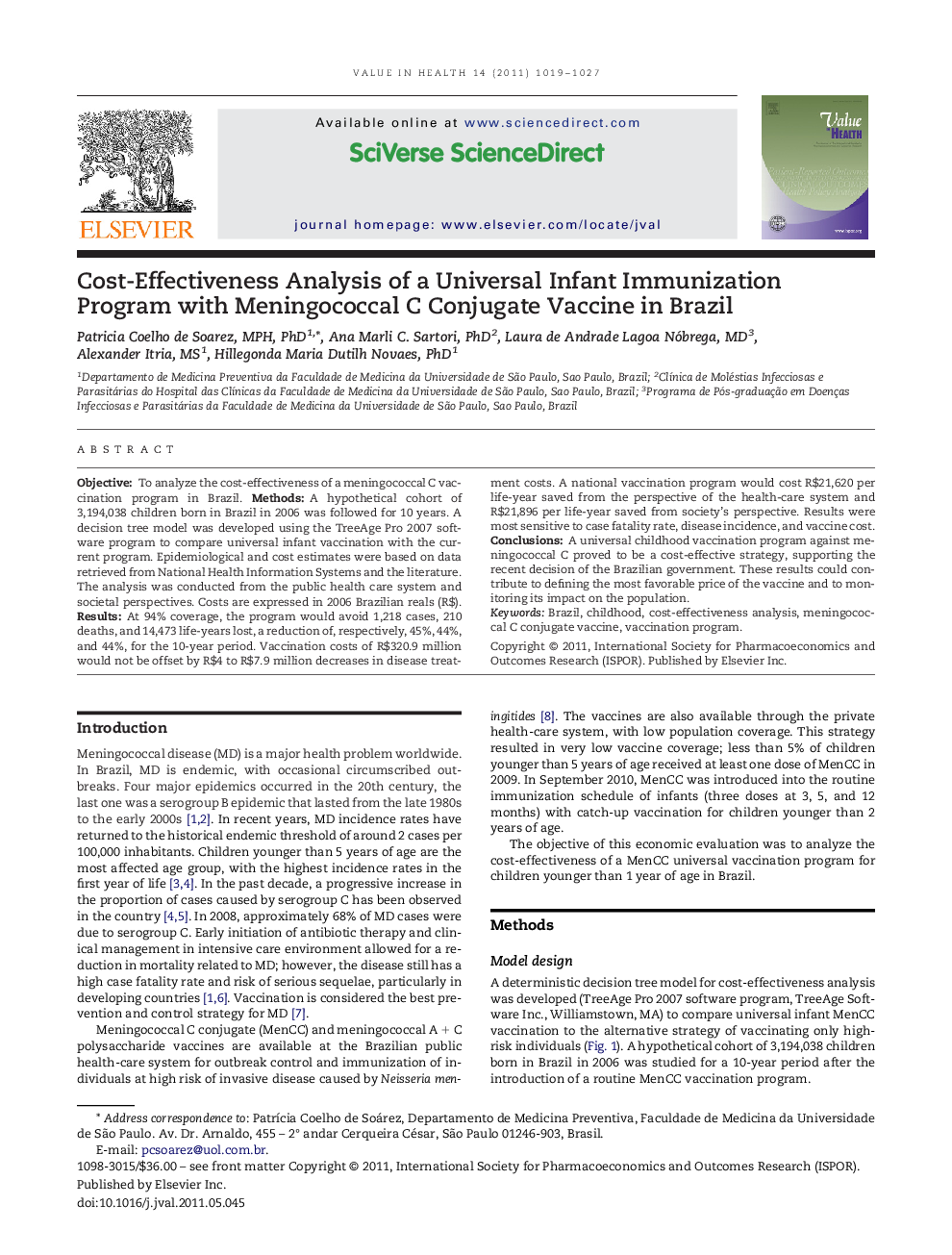| Article ID | Journal | Published Year | Pages | File Type |
|---|---|---|---|---|
| 991205 | Value in Health | 2011 | 9 Pages |
ObjectiveTo analyze the cost-effectiveness of a meningococcal C vaccination program in Brazil.MethodsA hypothetical cohort of 3,194,038 children born in Brazil in 2006 was followed for 10 years. A decision tree model was developed using the TreeAge Pro 2007 software program to compare universal infant vaccination with the current program. Epidemiological and cost estimates were based on data retrieved from National Health Information Systems and the literature. The analysis was conducted from the public health care system and societal perspectives. Costs are expressed in 2006 Brazilian reals (R$).ResultsAt 94% coverage, the program would avoid 1,218 cases, 210 deaths, and 14,473 life-years lost, a reduction of, respectively, 45%, 44%, and 44%, for the 10-year period. Vaccination costs of R$320.9 million would not be offset by R$4 to R$7.9 million decreases in disease treatment costs. A national vaccination program would cost R$21,620 per life-year saved from the perspective of the health-care system and R$21,896 per life-year saved from society's perspective. Results were most sensitive to case fatality rate, disease incidence, and vaccine cost.ConclusionsA universal childhood vaccination program against meningococcal C proved to be a cost-effective strategy, supporting the recent decision of the Brazilian government. These results could contribute to defining the most favorable price of the vaccine and to monitoring its impact on the population.
